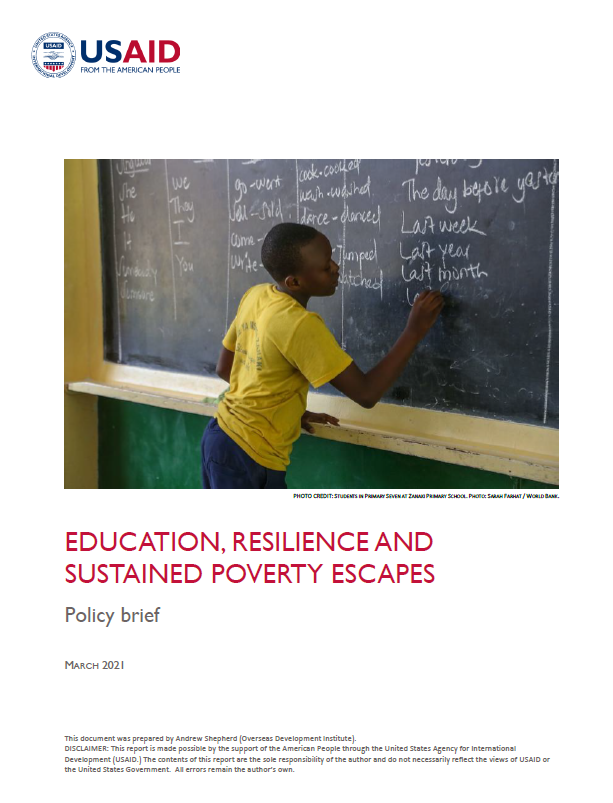Education is widely recognized as providing pathways out of poverty and a key resource with which to interrupt the inter-generational persistence of poverty. However, access, progression and quality constraints combined with household disadvantages and sluggish labor markets mean that the potential is not always achieved. This brief summarizes what can be done to promote a stronger role for education in poverty reduction, based on research which synthesizes findings on education and poverty dynamics across a number of developing countries (see summary in Box 1). The brief is intended for decision-makers and practitioners in education together with others focused on broader aspects of poverty reduction.
USAID’s approach to education and poverty reduction has been to support ‘learning out of poverty’ and especially the basic education which will help achieve equitable access and sustained improved learning outcomes (USAID Education Policy 2018). Better learning outcomes for poor children lead to higher future child survival rates, lifelong higher productivity and incomes, protection against ill health, and, in the case of educated women, a higher rate of investment in family by comparison with that of men. Building human capital contributes to achieving the inclusive and sustainable economic growth which in turn reduces extreme poverty. This brief not only reflects on education policy and programming priorities emerging from research on poverty dynamics and education, but also on how to promote the kind of household resilience capacities which are necessary to support poor children to progress far enough through the education system to make a difference to their and their families’ futures. There has been less consideration of this latter topic in existing USAID policy documents.
Author: Andrew Shepherd
The brief can be downloaded here
The associated report can be downloaded here


